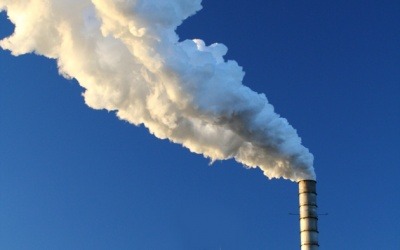RMAS calls for ‘progressive carbon-based tax’ on waste incineration
Yesterday, Resource Management Association Scotland (RMAS) called for a ‘progressive carbon-based tax’ on waste incineration in an attempt to incentivise efficiency and reduce carbon emissions. Responding to a recent review of Scotland’s residual waste, the body recommends using education and tax incentives to reduce waste and reuse energy from incineration to support local communities.
 The Scottish Government review, led by former Chartered Institution of Wastes Management (CIWM) Chief Executive Dr Colin Church, investigated options for managing residual waste in line with Scotland’s environmental goals. Dr Church’s remit includes consideration on how emissions from existing incinerators can be reduced and residual heat reused across local communities and businesses.
The Scottish Government review, led by former Chartered Institution of Wastes Management (CIWM) Chief Executive Dr Colin Church, investigated options for managing residual waste in line with Scotland’s environmental goals. Dr Church’s remit includes consideration on how emissions from existing incinerators can be reduced and residual heat reused across local communities and businesses.
Noting the volume of residual waste as the sector’s primary concern, the RMAS recommends using educational resources to change behaviour patterns in consumers and other waste producers, as well as alternative material and product design options.
The body claims most incineration plants are too large and are not located to optimise energy use. It recommends future plants be developed in smaller community-orientated sites, better geographically distributed, to provide energy to housing developments and businesses through local heating schemes.
Further, RMAS proposes the removal of non-biogenic carbon from residual waste, most of which is found in plastics, to help reduce carbon intensity of the incineration process. This draws on ‘Project Beacon’, led by the Tay Cities Deal, which aims for an ‘all in one bin’ collection system to maximise the value of plastic waste.
Angus Hamilton, RMAS Member and Managing Director of waste and resources company Levenseat, said: “We need a multi-faceted waste strategy which focuses on behavioural change from all waste producers, including consumers.
“We also need to explore changes to the planning regime to enable the building of integrated facilities that can provide energy for local housing developments and businesses. With further Scottish Government investment to aid development of heat distribution networks, these plants could deliver real value for local communities.
“To support these aims, RMAS is calling for a scheme that incentivises and rewards the reduction of fossil-derived carbon emissions and drives energy efficiency improvements. This will ensure a focus on resource management and the role the sector has in achieving net zero.”
Co-Chair of the RMAS Technical and Innovation Group, John Ferguson, added: “Our members fully understand their responsibility towards the planet and, rather than resisting change, we aim to be a voice of conscience in reducing emissions.
“Mechanisms such as a carbon tax or inclusion of incineration in the UK Emission Trading Scheme reflect that ethos and properly designed, to take into account the wider societal duties of our sector to manage residual waste safely, could create strong fiscal drivers to reduce both the carbon intensity of residual waste and increase energy use efficiency from incineration. This would serve as another useful tool to incentivise further green investment from within our industry.
“RMAS believes this is a whole system problem that can be fixed to ensure the resource management sector remains able to provide vital services which protect human health and the environment while conserving resources.”






